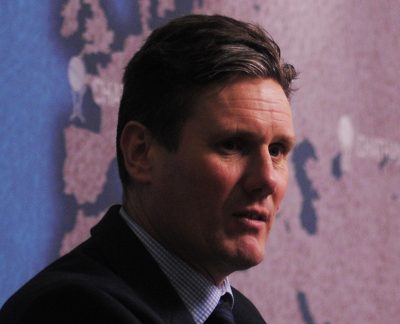Symposium: What does Ukraine’s incursion into Russia really mean?

Beginning Aug. 6, the Ukrainian military launched a surprise, cross-border offensive against Russia in the eastern Kursk region, seemingly flipping the script on the war’s current trajectory.
Kyiv claims its units have pushed more than 20 miles into Russian territory, taking over 74 settlements and towns encompassing some 400 square miles, as well as over 100 Russian prisoners of war.
For its part, Moscow has acknowledged the incursion but as of Wednesday said its military has stabilized the border and is actively fighting to wrest control over those contested areas. Meanwhile, the fog of war has settled in and there is no official confirmation on the number of casualties or actual territorial gains by Ukraine.
Russian President Vladimir Putin has denounced the incursion as a “large-scale provocation.” For its part the Ukraine Foreign Ministry is saying this isn’t about holding territory but stopping long-range missile strikes by Russia into Ukraine from the Kursk region by creating a “buffer zone” there.
So many questions remain about the Ukrainian strategy, the Russian response and what long term impact this may have — or not — on the overall war, including the potential for future negotiations, the effect on morale on both sides, and whether this emboldens Ukraine’s supporters, including the U.S., to help re-energize what was looking like a foundering war effort on the Ukrainian side.
So we put the following question to a well-rounded group of foreign policy experts:
“What is the likely impact of current Ukrainian military incursions into the Russian Kursk region on the broader Ukraine War?”
Jasen J. Castillo, Monica Duffy Toft, Ivan Eland, Mark Episkopos, Lyle Goldstein, John Mearsheimer, Sumantra Maitra, Rajan Menon, Peter Rutland, Stephen Walt
Jasen J. Castillo, Co-Director, Albritton Center for Grand Strategy, George H.W. Bush School of Government, Texas A&M University
Once again, Ukraine’s armed forces have demonstrated their tremendous will to fight, something Russia discounted when they invaded in 2022. Nevertheless, the military objective of this offensive remains unclear. In the short term, this is a public relations boost for Ukraine and a morale blow to Russia. The Kursk gamble might also reduce pressure on Ukraine’s defenses as Russia moves forces to stop the incursion. My worry is that in the longer term, Ukraine, which is facing dangerous shortfalls in manpower and equipment, will deplete elite units that would have been needed elsewhere. In a war of attrition, manpower and equipment are essential. Ukraine’s attack reminds me of Germany’s audacious Western offensive in 1944 that surprised the Allies, made gains, and ended with a defeat at the Battle of the Bulge, which then wasted manpower and equipment it needed months later on the Eastern Front.
Monica Duffy Toft, Professor of International Politics and Director of the Center for Strategic Studies at The Fletcher School of Law and Diplomacy.
The likely impact of Ukraine’s military incursion into Russia is going to affect two axes of interest; one material, and one psychological.
On the material axis, Ukraine may be able to temporarily degrade Russia’s ability to launch missile attacks against Ukrainian targets, the most sensitive of which involve the deliberate and systematic harm of Ukraine’s noncombatants. But in material terms, not much can be expected in terms of lasting impact. Ukraine will be forced to retreat from Russia, and its surviving troops and equipment will be redistributed, after rest and refit, to other critical areas of Ukraine’s front with Russia.
It is on the psychological axis we can expect the most impact. Already, Russian President Vladimir Putin’s legitimacy as a “great leader” was damaged in the opening weeks of the war. This latest incursion is worse, because no Russian leader can afford to preside over the loss of Russian territory, even temporarily, and survive with reputation intact.
That said, Putin has unprecedented control over what Russians learn about the war. The psychological impact will be most felt by Ukraine and its allies. It will alleviate attention fatigue in the global sphere. It also reminds Western donors that Ukraine can fight and win, so the ongoing sacrifice of sending weapons and ammunition will not be wasted.
Ivan Eland, Director of the Independent Institute’s Center on Peace & Liberty.
Although Ukraine has insisted that its intent is not to hold captured land in Russia, one might then ask what purpose the incursion serves. It may have been designed to shock Russian leader Vladimir Putin about Russia’s vulnerability, but prior raids or attacks on Russia and Crimea have already so demonstrated.
Conducting offensive operations is usually much more costly in personnel and equipment than being on defense, so is it worth it for Ukraine to divert forces from already thin defense lines to go on a risky offensive with only nebulous benefits? Russia’s offensive is already making headway, and because Russia outnumbers and outguns Ukraine, it may not need to denude its attack forces in Ukraine to defend Russian territory. Ukraine indeed may desire to occupy Russian territory to eventually trade Ukrainian-occupied Russian territory for Russian-occupied Ukrainian land in any truce negotiations, but Ukraine risks being surrounded by superior forces.
Mark Episkopos, Eurasia Research Fellow at the Quincy Institute for Responsible Statecraft and Adjunct Professor of History at Marymount University



